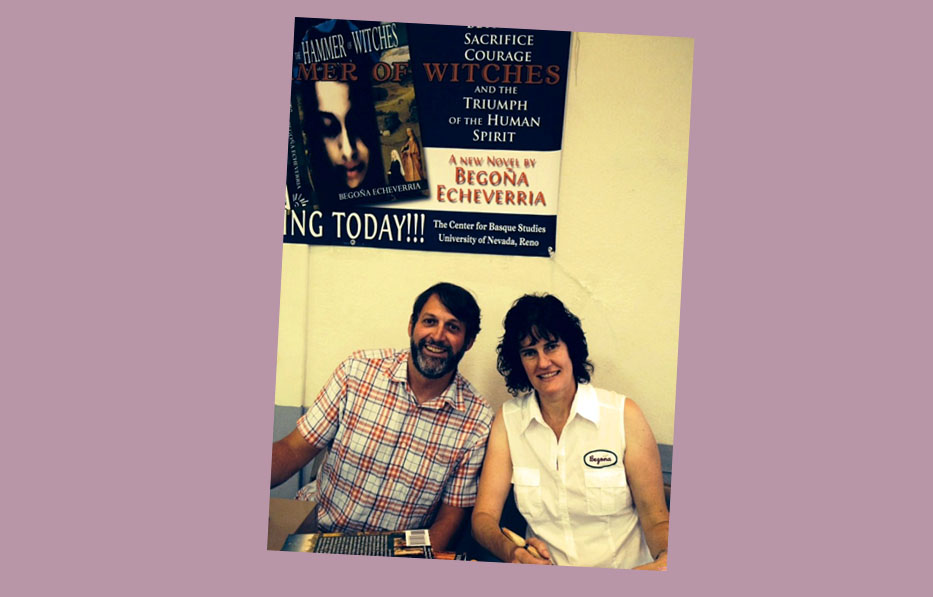Ander Egiluz Beramendi/California. The Hammer of Witches is, so far, the last title published by the Center for Basque Studies of the University of Nevada-Reno. The book is a historical novel written by Chino, California native Begoña Echeverria, who is also a member of the Basque-American trio Noka. The book is available at the Center for Basque Studies Basquebooks and on Amazon.
-‘The Hammer of Witches,’ can be understood as both the punishment those women suffered and also, as their revenge for what the inquisition did to them. Were you ambiguous on purpose?
-I would use the term “justice” rather than “revenge.” But, readers will have to decide for themselves which interpretation is right!
-In the novel, a woman fights to honor her mother in that very dark era of our history, especially for women. Why did you decide to write this novel?
-As the daughter of Basque immigrants, I grew up with a vague sense of witchcraft in the Basque Country. I had heard stories or songs about witches and their shenanigans. But somehow I did not really make the connection to the 1610 witch trials in Logroño (Spain) even though most of the witches persecuted there were from the Baztan Valley in the Basque Country, where my family is from. I became interested in learning more about the historical case − what had actually happened and why.
-And what was your biggest challenge at the time of setting the novel four centuries ago?
-The biggest challenge was getting the details right. I spent a lot of time examining documents from that time period, and especially valuable were Gustav Henningsen’s The Witches Advocate and The Salazar Documents. I also researched the houses and churches of the time period, the artwork, artifacts, furnishings and even the religious jewelry people wore to indicate what side they were on. This was very important.
-Why a historical novel? Why did you base it on true events?
-The Hammer of Witches is set during the Spanish Inquisition, a time rife with persecution and torture, and it was necessary to write about that. Those were the most difficult scenes.
-Are there 'witches' nowadays? If so, who are they? And who would be the Inquisition?
-There is a Basque saying, “That there are witches, you must not believe. That you do not believe in witches, you must not say.” Yet I’m going to take a risk and say that I believe witches do not exist. What we see, unfortunately, is that vulnerable individuals are scapegoated as witches in times of difficulty or tumult − when an infant dies, a crop fails, or things do not go someone’s way. In that sense, many of us can likely imagine situations in which we might be victimized as witches. What’s more difficult to fathom is that we can also become inquisitors to the extent that we condemn others as guilty of wrongdoing based on fear or despair rather than sound evidence.
-You also sing in Noka, a Californian group known for singing in Basque about women specifically in Euskara used by women. Did the history behind the novel inspire you to write any songs or, on the contrary, was this one too deep a story to be compressed into just one?
-Thank you for bringing up Noka. As you can see from our website, we are a trio that specializes in songs about women that use a familiar pronoun for a female addressee called noka, roughly akin to tu in Spanish and French. I did include some folksongs in The Hammer of Witches that I sing with noka and I also wrote some new songs (or rather, my characters did) to punctuate certain plot points. One in particular summarizes the entire novel; I wrote its lyrics to a tune Noka is using for an upcoming CD. I have written other witch-themed songs with fellow Noka members Andréa Bidart and Cathy Petrissans for future recordings as well. It’s exciting for me to see how these creative and scholarly pursuits build off each other.






 Send to a friend
Send to a friend Add comment
Add comment








